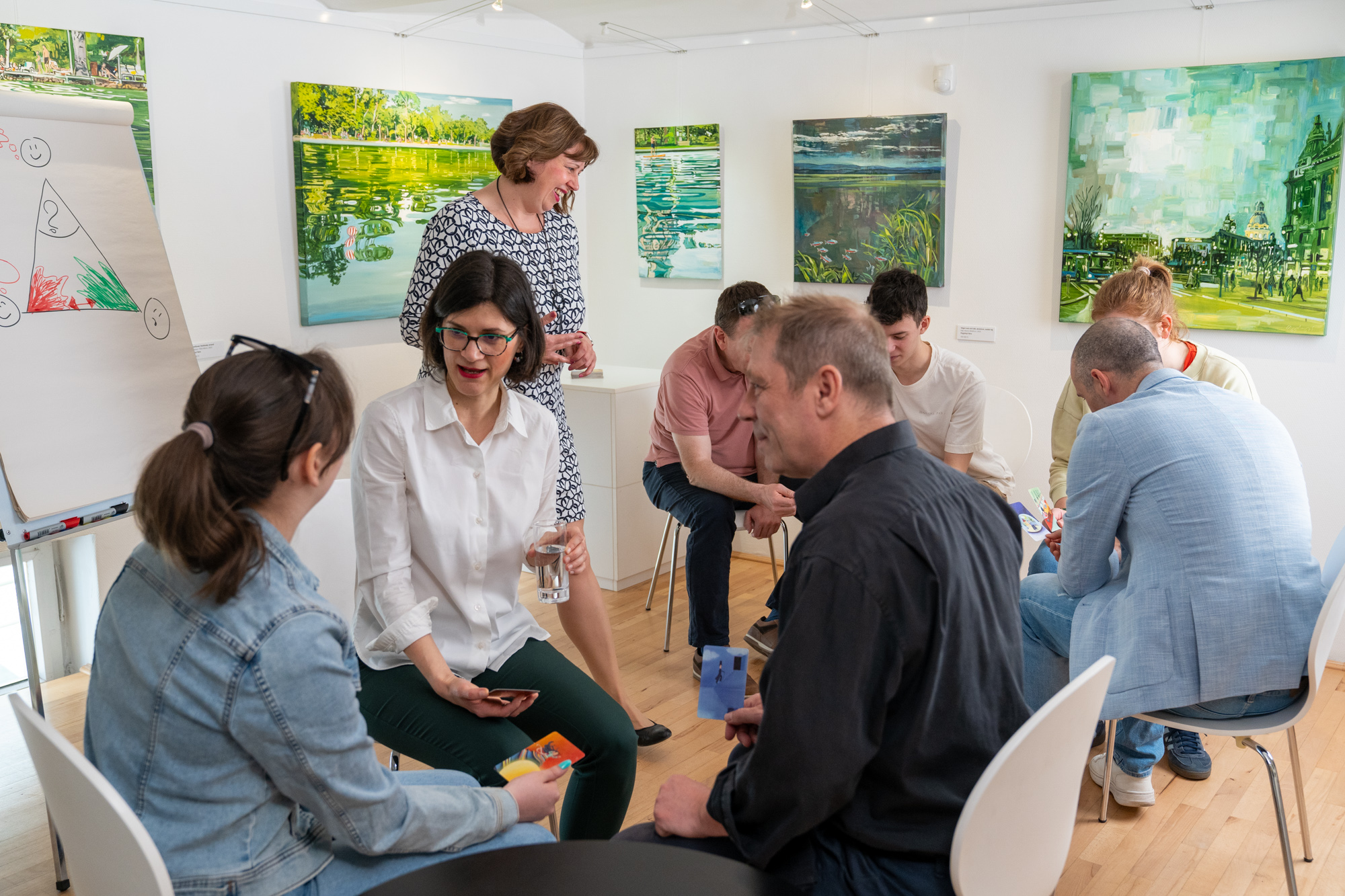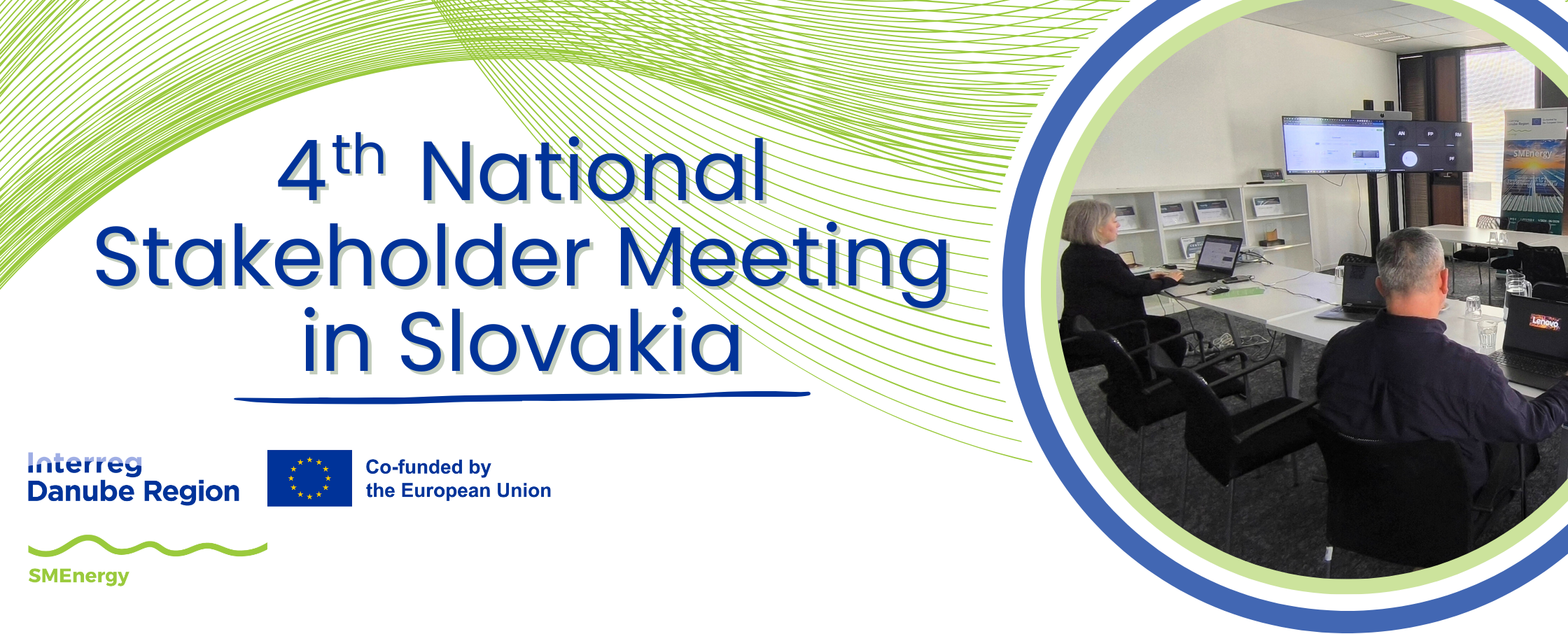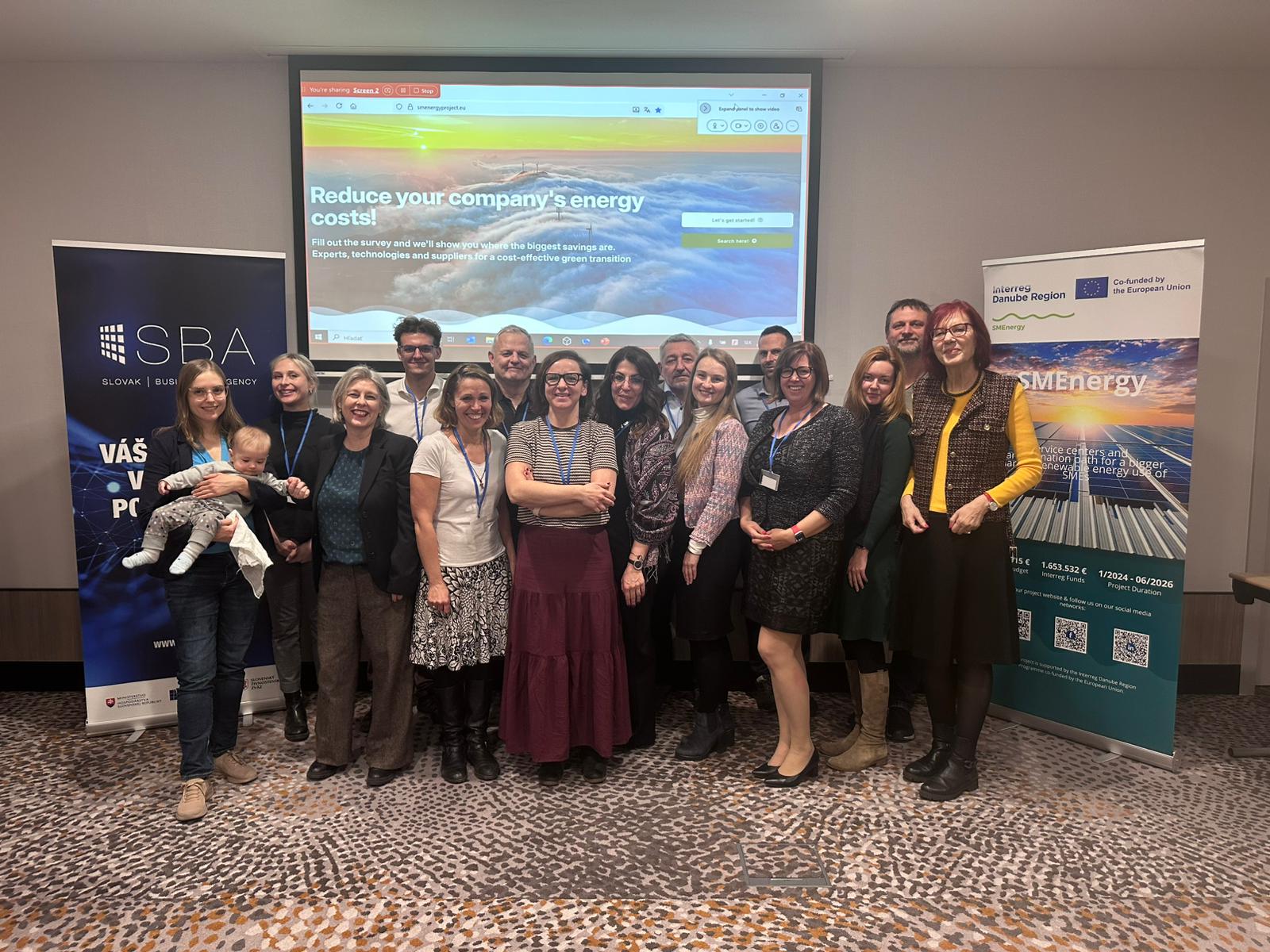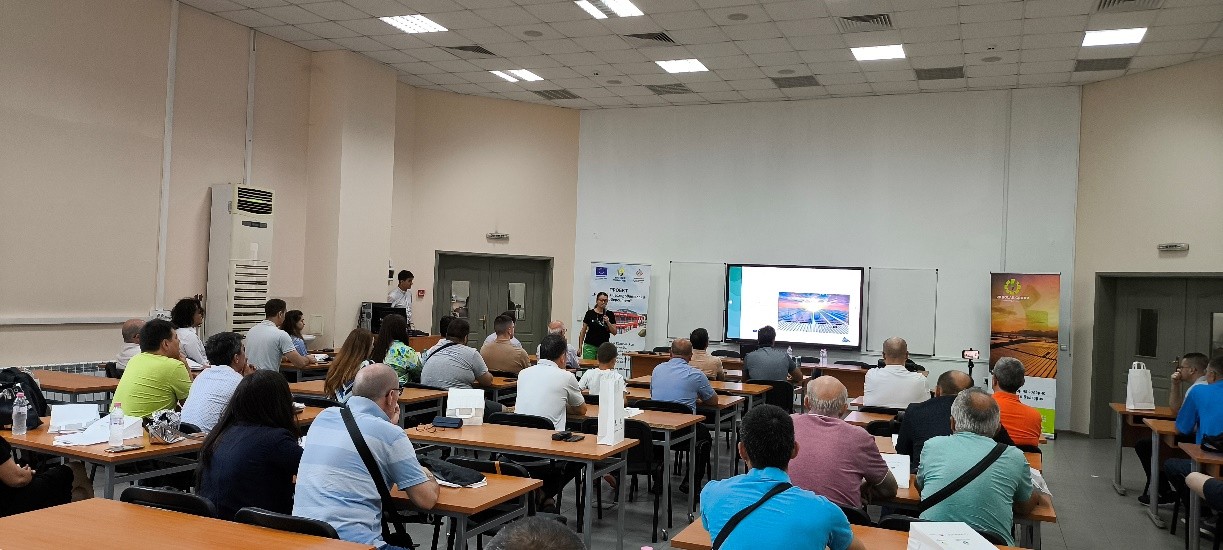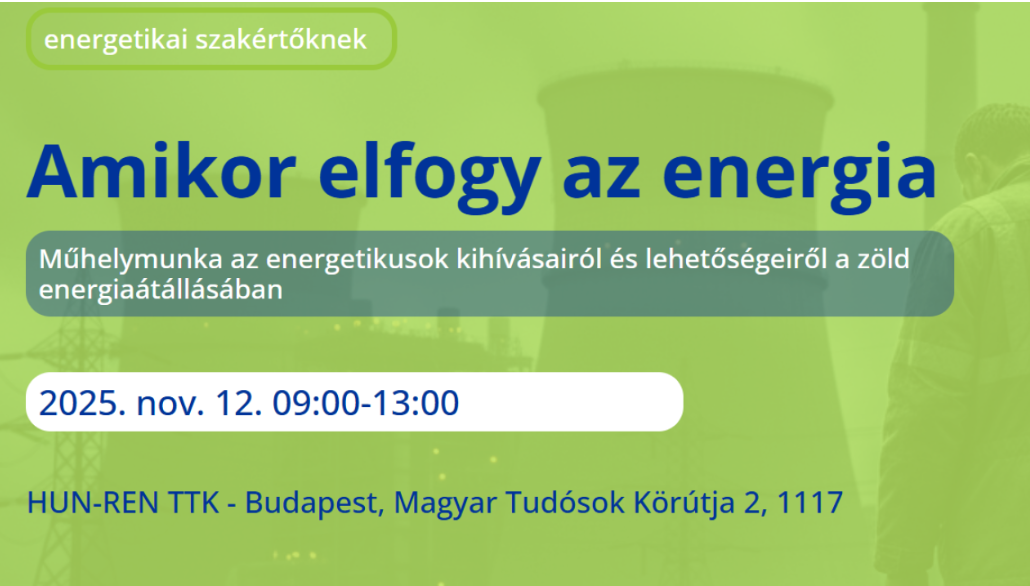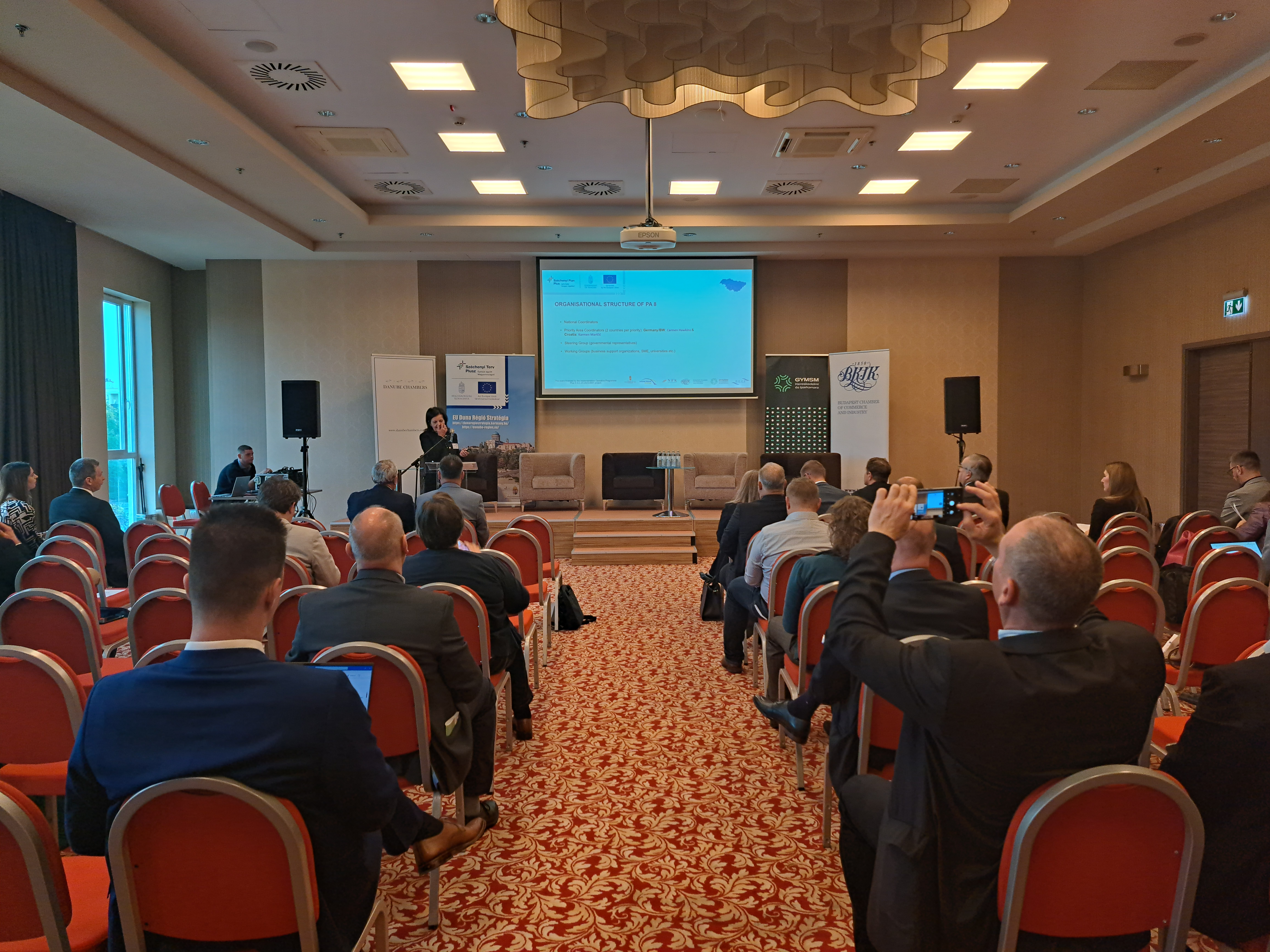
Leading the Green Transition – Insights from the “Future of Businesses within the Danube Region” Conference
Last week at the “Future of Businesses within the Danube Region” Conference in Győr, Hungary, experts, policymakers, and business leaders gathered to explore how small and medium-sized enterprises (SMEs) can accelerate their green transition. Organised under the framework of regional cooperation within the Danube area, the event brought together stakeholders from across Hungary and neighbouring countries to exchange practical solutions and strategic insights for sustainable business growth.
Moderated by László Örlős, with keynote speaker Gergely Hankó and panellists Mónika Harsányi, Sándor Szilágyi, and Krisztina Horváth-Karip (Interreg Danube SMEnergy project), the discussion revealed that achieving sustainability is as much a matter of mindset and leadership as it is of technology and finance.
One key insight from the debate was that sustainability must be approached as a change process — not a checklist or a short-term project. SMEs often face uncertainty about energy sources, funding instruments, and legal frameworks. They need more than guidelines — they need ongoing support, knowledge exchange, and partnership along the way. Without this accompaniment, even committed companies can lose momentum when challenges arise.
The participants emphasised that the green transition can only succeed if we:
Create a predictable and understandable legal framework,
Provide access to financial tools and the capacity to use them effectively,
Simplify administrative processes and increase flexibility,
Invest in local infrastructure, and
Foster a cultural shift away from dependence on fossil fuels.
In addition, nature-based investments — such as green spaces, urban biodiversity projects, and water management initiatives — were highlighted as strong drivers for sustainable transformation. These projects not only contribute to environmental resilience but also generate visible, community-level impact, reinforcing public trust in sustainability efforts.
Equally important are local initiatives and collaborations, which can serve as inspiring models for others. When municipalities, SMEs, and communities work together, they turn sustainability from an abstract policy goal into shared, tangible progress.
As one panellist noted: “If sustainability is to take root, we must lead it like any other transformation — with consistency, partnership, and courage.”
The event’s conclusions echoed the Interreg Danube Region SMEnergy project’s mission to support SMEs in developing and implementing practical energy transition pathways. By linking local action with transnational learning, initiatives like SMEnergy demonstrate how cooperation across the Danube Region can strengthen both competitiveness and climate resilience — ensuring that the green transition becomes a collective journey rather than an individual challenge.
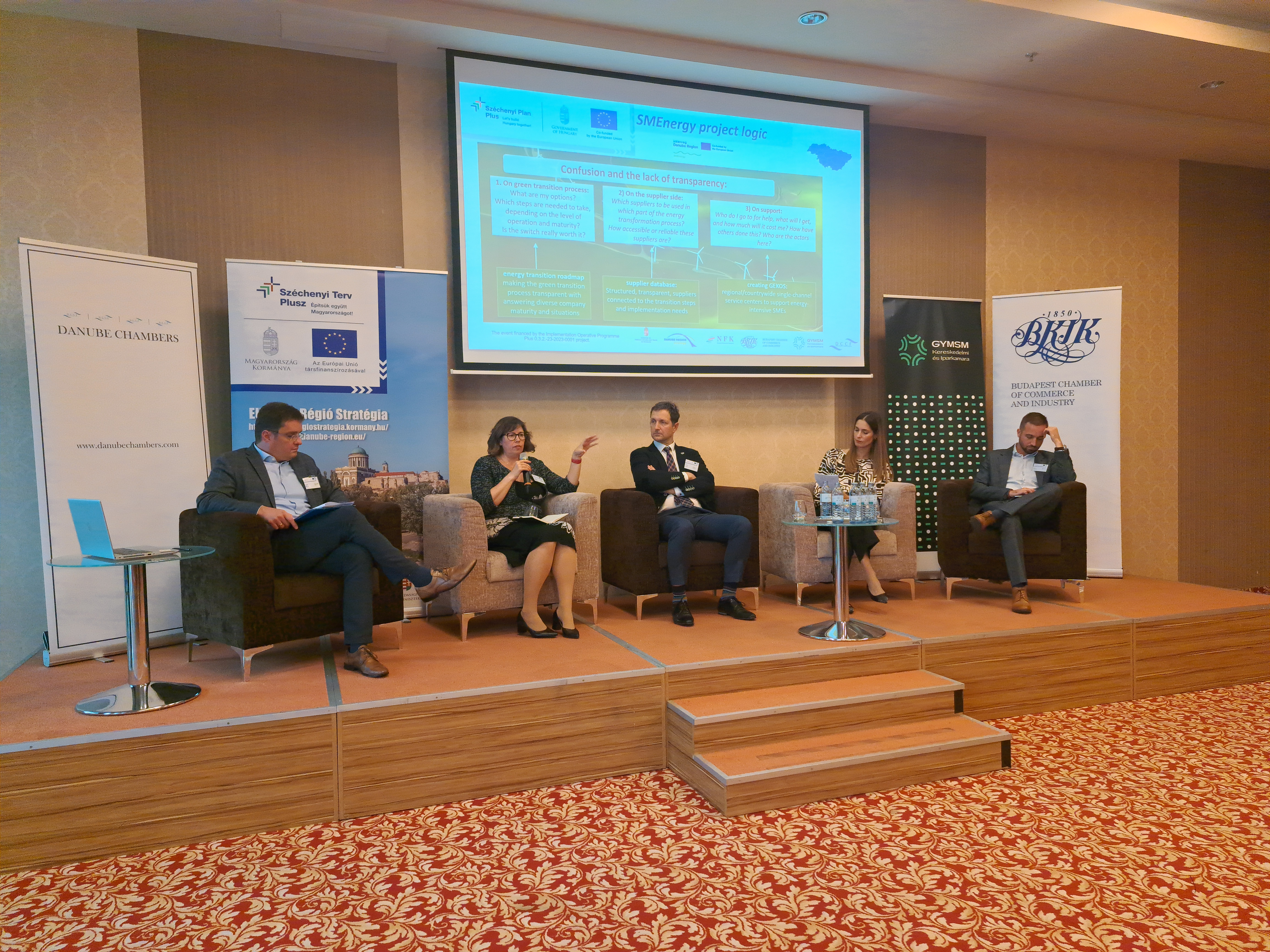
Krisztina Horváth-Karip represents the Interreg Danube SMEnergy project as a panelist at the “Future of Businesses within the Danube Region” Conference
News & Events
Read the most recent updates and explore the upcoming events.

